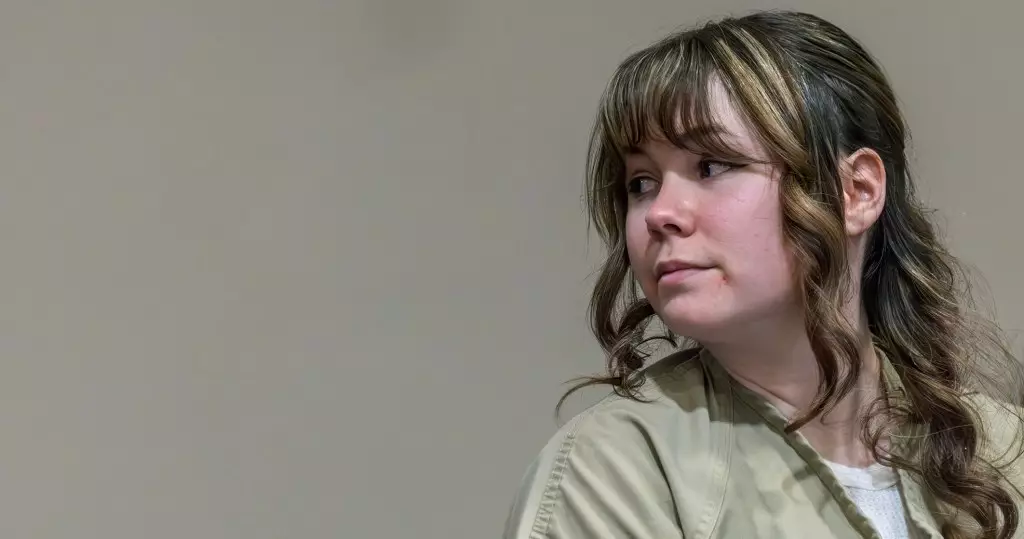The tragic death of Halyna Hutchins, the cinematographer on the set of the indie film *Rust*, sent shockwaves through the film industry, raising serious questions about safety protocols and accountability in Hollywood. After months of investigations and court proceedings, Hannah Gutierrez-Reed, the film’s armorer, is experiencing the repercussions of her actions in a very public and painful reality. Released from prison after serving 85% of her 18-month sentence for involuntary manslaughter, Gutierrez-Reed now faces a future limited by strict parole conditions that include restrictions on her interactions with Hutchins’s family, employment requirements, and ongoing mental health assessments.
Gutierrez-Reed’s story is a stark reminder of the cost of negligence in a high-pressure environment, where time and budget constraints can override fundamental safety measures. Her arrest and subsequent conviction reflect a culture that sometimes prioritizes profit over people, and her release underscores the complexities involved when real-life tragedies intersect with the entertainment industry.
Accountability in the Spotlight
What makes this scenario particularly disturbing is the broader context of the film industry’s response to safety lapses. While Gutierrez-Reed has borne the brunt of the fallout, many wonder whether her prosecution was a scapegoat for systemic failures that allowed a loaded weapon to be mishandled on set. The absence of significant repercussions for actor Alec Baldwin, who wielded the gun that fatally shot Hutchins, raises difficult questions about equality in accountability. A jury’s decision to absolve Baldwin of criminal charges while convicting Gutierrez-Reed is indicative of a justice system that often seems to operate differently for those in the spotlight.
One cannot overlook how this disparity reflects a larger pattern—those with power often navigate the consequences of their actions differently than those who bear less influence. Baldwin’s case, along with the apparent dismissal of certain charges against him due to prosecutorial errors, raises critical questions about the fairness of the judicial process and whether the courts are equipped to handle cases where celebrity and tragedy collide.
The Burden of a Broken System
As the narrative unfolds, discussions surrounding gun safety on set have taken on new urgency. The fact that Gutierrez-Reed, with limited experience, was trusted with the responsibility of managing firearms in a high-stakes environment speaks volumes about the industry’s practices. The tragedy has prompted calls for more rigorous training and oversight for those in charge of weapons on film sets. As Hollywood rallies for reform, this incident offers an opportunity to reflect on the need for stronger guidelines and better preparedness to avert future tragedies.
Gutierrez-Reed’s release comes with the stipulation that she must not own firearms, a clear recognition of the severity of her actions. However, the dual supervision imposed upon her suggests an acknowledgment of the complexities of her situation—she is both the accused and a victim of an unforgiving industry. As she attempts to rebuild her life in Bullhead City, her journey of rehabilitation serves as a poignant reminder that redemption is fraught with challenges.
Looking Toward the Future
The film *Rust*, postponed and scrutinized since the accident, will be a benchmark for how enthusiastic audiences are about films produced under such tragic circumstances. Its eventual release, now handled by Falling Forward Films, indicates that the industry is ready to move on, but whether the audience can do the same remains uncertain. The tension between art and the accidents that happen off-screen complicates the discourse on creative expression and personal accountability.
For Gutierrez-Reed, the road ahead is not merely about meeting the terms of her parole; it’s about healing the wounds left behind not only on her own conscience but also on the community of filmmakers and the family of Hutchins. Whether she can find her place in an industry that has been turned upside down by her actions will be a story to watch. Her efforts to appeal her conviction may also influence public perception of her role in the tragedy and the broader implications of safety protocols in filmmaking.
As the consequences of Hutchins’s untimely death continue to ripple through Hollywood, the experiences of those directly involved, like Gutierrez-Reed, bring to light the urgent need for dialogue about safety, responsibility, and moral accountability in the pursuit of cinematic artistry.

